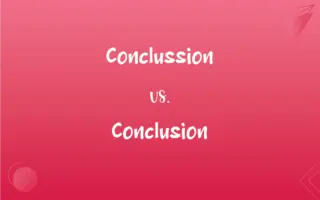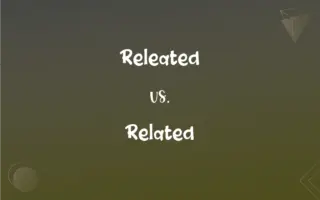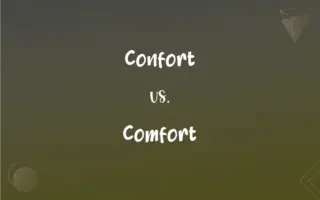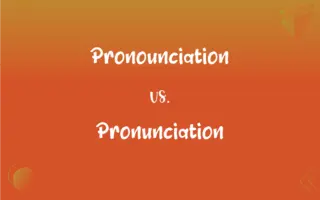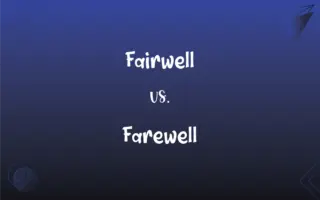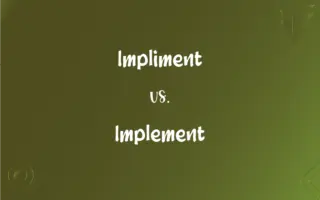Sceintific vs. Scientific: Mastering the Correct Spelling
Edited by Harlon Moss || By Janet White || Updated on March 8, 2024
"Sceintific" is incorrectly spelled. The correct spelling is "scientific," pertaining to or based on science and its methods.
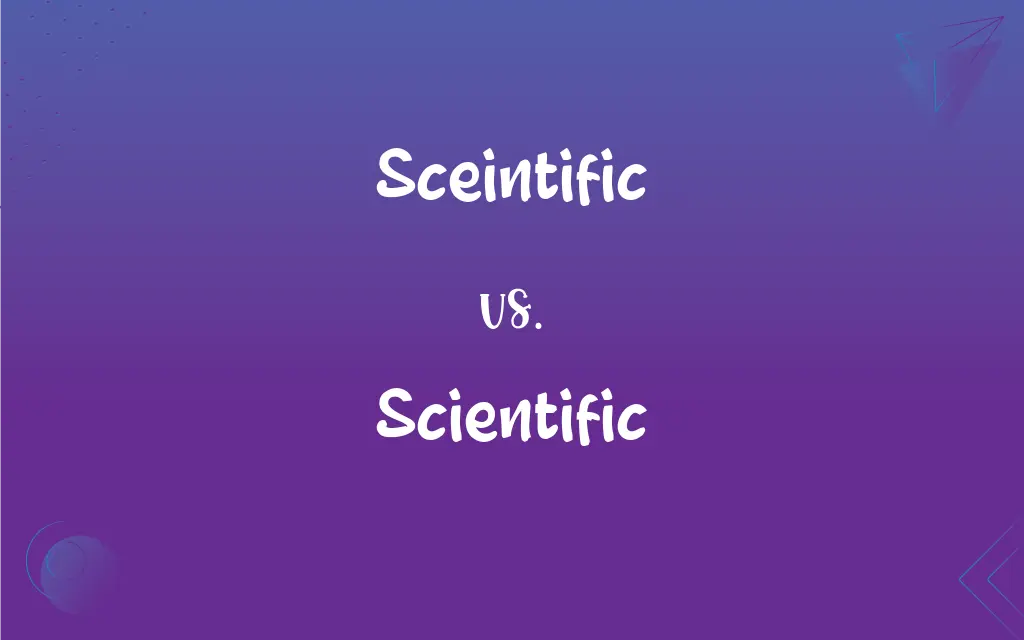
Which is correct: Sceintific or Scientific
How to spell Scientific?

Sceintific is Incorrect

Scientific is Correct
ADVERTISEMENT
Key Differences
Recall that "scientific" combines "science" and "tic."
Use mnemonic: "Science ends in 'ce,' so does scientific."
Remember the "sci" in "science" starts "scientific."
Think of "scientific" as "science" + "tific."
Associate "scientific" with "systematic," both starting with "s."
ADVERTISEMENT
Correct usage of Scientific
The sceintific community agrees on the importance of this finding.
The scientific community agrees on the importance of this finding.
They published their sceintific findings in a well-known journal.
They published their scientific findings in a well-known journal.
His approach was not sceintific enough for the study.
His approach was not scientific enough for the study.
She has a strong interest in sceintific discoveries.
She has a strong interest in scientific discoveries.
The research was conducted using sceintific methods.
The research was conducted using scientific methods.
Scientific Definitions
Relating to or based on the methods of science.
Her approach to solving the problem was very scientific.
Involving systematic observation and experimentation.
Scientific research is crucial for medical advancements.
Characterized by precision and accuracy, typical of science.
He made a scientific assessment of the situation.
Conducted in the manner of scientists, rigorous and methodical.
The scientific study revealed new data about climate change.
Employing or pertaining to the techniques of the sciences.
Scientific instruments are essential for accurate measurements.
Of, relating to, or employing the methodology of science.
Of, or having to do with science.
Scientific Sentences
Scientific progress depends on open communication and peer review.
Their scientific experiment aimed to test the theory's validity.
The scientific community is working to solve the energy crisis.
Scientific investigations follow a structured approach to problem-solving.
Scientific methods involve careful observation and precise measurement.
She pursued a career in scientific research to make a difference.
The discovery was a significant contribution to scientific knowledge.
He wrote a scientific paper on the effects of climate change.
The scientific study revealed new facts about the solar system.
Scientific breakthroughs often lead to new inventions.
Scientific journals publish the latest research findings.
Scientific debates help refine our understanding of the world.
Innovations in scientific technology can transform industries.
Scientific evidence supports the theory of evolution.
Schools should promote scientific curiosity among students.
The scientific model predicted the weather with accuracy.
The policy was based on solid scientific data.
The scientific method is a cornerstone of modern research.
His scientific curiosity drove him to explore various fields.
The debate highlighted the need for scientific literacy.
The museum's scientific exhibits are both educational and engaging.
The project received significant scientific funding.
The conference gathered scientific minds from around the world.
Her scientific achievements were recognized with several awards.
Scientific theories evolve as new evidence emerges.
Scientific Idioms & Phrases
Scientific method
A method of procedure that has characterized natural science since the 17th century, consisting in systematic observation, measurement, and experiment, and the formulation, testing, and modification of hypotheses.
The experiment was designed according to the scientific method.
Scientific breakthrough
A significant or sudden advance in scientific knowledge.
The discovery of penicillin was a major scientific breakthrough.
Scientific community
The group of all scientists, often sharing information and research.
The scientific community is divided on this issue.
Scientific consensus
General agreement among scientists.
There is a scientific consensus that climate change is real.
Scientific inquiry
The diverse ways in which scientists study the natural world and propose explanations based on evidence they gather.
Scientific inquiry is essential for advancing our understanding of biology.
Scientific research
The systematic investigation into and study of materials and sources in order to establish facts and reach new conclusions.
She dedicated her life to scientific research.
Scientific discovery
The act of detecting something new, or something previously unrecognized as meaningful.
The scientific discovery opened up an entirely new field of study.
Scientific investigation
The active and systematic process of inquiry to discover new information or relationships.
The scientific investigation led to unexpected results.
Scientific literacy
The knowledge and understanding of scientific concepts and processes required for personal decision making, participation in civic and cultural affairs, and economic productivity.
Enhancing scientific literacy among the public is crucial.
Scientific theory
A well-substantiated explanation of some aspect of the natural world that is acquired through the scientific method and repeatedly tested and confirmed through observation and experimentation.
The theory of relativity is a fundamental scientific theory in physics.
Scientific evidence
Evidence that serves to either support or counter a scientific theory or hypothesis.
The policy should be based on solid scientific evidence.
Scientific experiment
A procedure carried out to support, refute, or validate a hypothesis.
The students conducted a scientific experiment in their lab class.
Scientific model
A representation of an object or system or process that is used to describe and explain phenomena that cannot be experienced directly.
The scientific model accurately predicted the solar eclipse.
Scientific advancement
Progress in science, typically in the form of new discoveries, innovations, or technologies.
Scientific advancement has greatly improved our quality of life.
Scientific discipline
A specific branch of scientific knowledge.
Oceanography is a scientific discipline that studies the ocean.
Scientific journal
A periodical publication intended to further the progress of science, usually by reporting new research.
He published his findings in a prestigious scientific journal.
Scientific knowledge
Facts, information, and skills acquired through experience or education in science.
Scientific knowledge expands our understanding of the universe.
Scientific terminology
The specialized language used by scientists to communicate more precisely.
Understanding scientific terminology is essential for reading research papers.
Scientific perspective
A way of looking at the world that involves questioning, observing, experimenting, and drawing conclusions based on evidence.
Viewing the issue from a scientific perspective may offer new solutions.
Scientific analysis
The examination of something in detail, using scientific methods, to understand its nature or to determine its essential features.
The scientific analysis confirmed the substance's composition.
FAQs
Which vowel is used before scientific?
Typically, "a" or "the" is used before "scientific."
What is the root word of scientific?
The root word is "science."
What is the verb form of scientific?
There is no direct verb form of "scientific." A related verb could be "to investigate scientifically."
What is the plural form of scientific?
As an adjective, "scientific" does not have a plural form.
What is the pronunciation of scientific?
Scientific is pronounced as /ˌsaɪənˈtɪfɪk/.
Which preposition is used with scientific?
Prepositions like "in," "of," and "by" are used with "scientific."
Which conjunction is used with scientific?
Conjunctions such as "and," "but," or "or" can be used with "scientific."
Why is it called scientific?
It's called "scientific" from the Latin "scientificus," meaning pertaining to science.
Is scientific an adverb?
No, "scientific" is not an adverb.
Is scientific a noun or adjective?
"Scientific" is an adjective.
Is scientific a negative or positive word?
"Scientific" is neutral; it becomes positive or negative based on context.
Is scientific a vowel or consonant?
"Scientific" is a word, not a vowel or consonant.
Is scientific a countable noun?
"Scientific" is an adjective, not a countable noun.
How do we divide scientific into syllables?
"Scientific" is divided as Sci-en-tif-ic.
What is the second form of scientific?
It does not have a second form.
What is the singular form of scientific?
"Scientific" is an adjective and does not have a singular or plural form.
Is scientific a collective noun?
No, it is not a collective noun.
Is the word scientific imperative?
No, "scientific" is not an imperative; it's an adjective.
What is a stressed syllable in scientific?
The second syllable, "en," is stressed: sci-EN-tif-ic.
What is another term for scientific?
Another term could be "systematic" or "empirical."
What is the opposite of scientific?
The opposite could be "unscientific" or "nonscientific."
Is scientific an abstract noun?
"Scientific" is an adjective, not a noun.
How many syllables are in scientific?
"Scientific" has four syllables.
Is the scientific term a metaphor?
"Scientific" is not typically used as a metaphor.
Which article is used with scientific?
Articles like "a," "an," or "the" are used with "scientific."
What part of speech is scientific?
"Scientific" is an adjective.
Which determiner is used with scientific?
Determiners like "the," "this," or "a" are used with "scientific."
What is the first form of scientific?
As an adjective, "scientific" does not have different forms.
What is the third form of scientific?
It does not have a third form.
How is scientific used in a sentence?
"The scientific community is actively researching renewable energy solutions."
About Author
Written by
Janet WhiteJanet White has been an esteemed writer and blogger for Difference Wiki. Holding a Master's degree in Science and Medical Journalism from the prestigious Boston University, she has consistently demonstrated her expertise and passion for her field. When she's not immersed in her work, Janet relishes her time exercising, delving into a good book, and cherishing moments with friends and family.
Edited by
Harlon MossHarlon is a seasoned quality moderator and accomplished content writer for Difference Wiki. An alumnus of the prestigious University of California, he earned his degree in Computer Science. Leveraging his academic background, Harlon brings a meticulous and informed perspective to his work, ensuring content accuracy and excellence.
